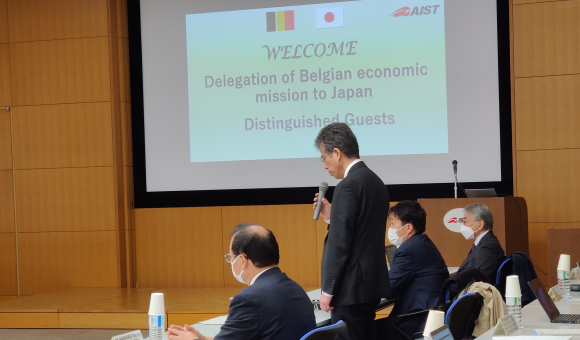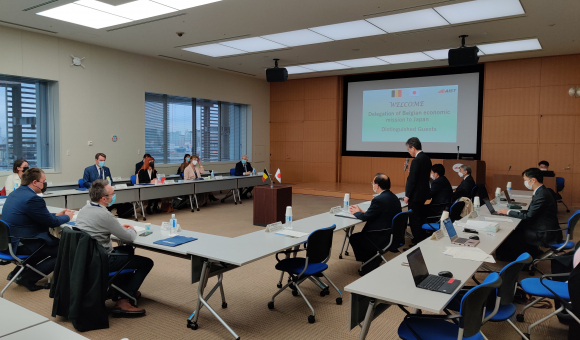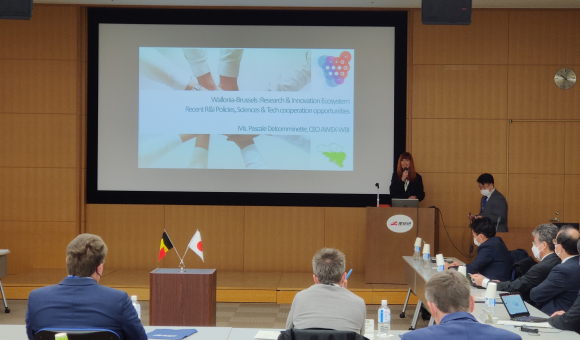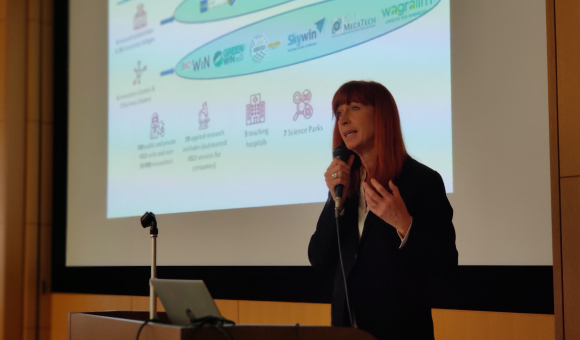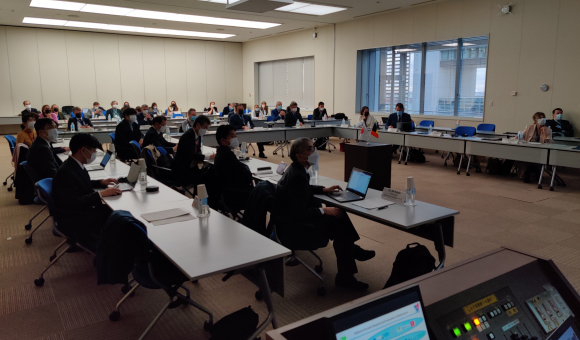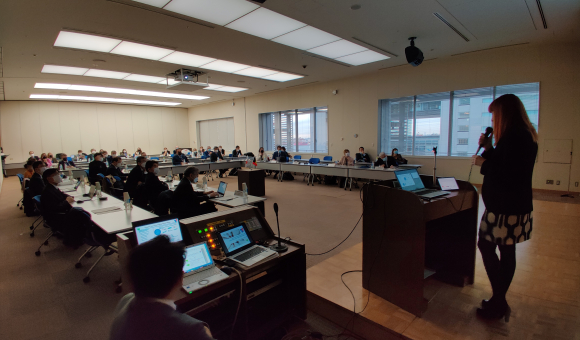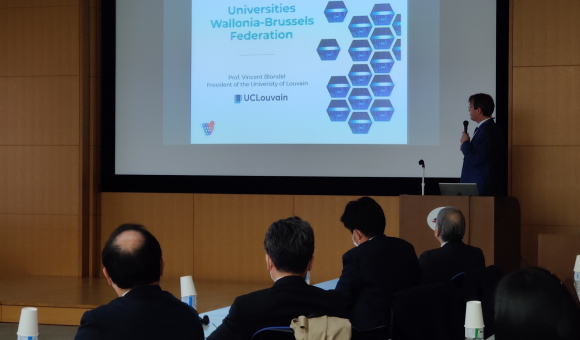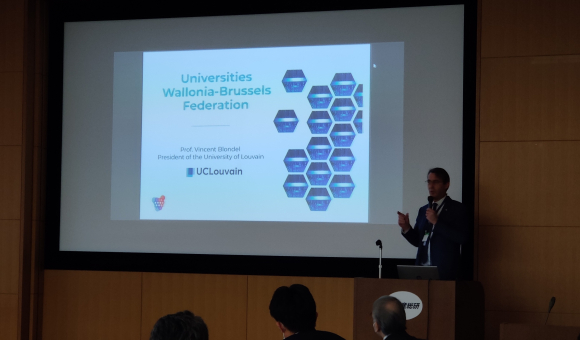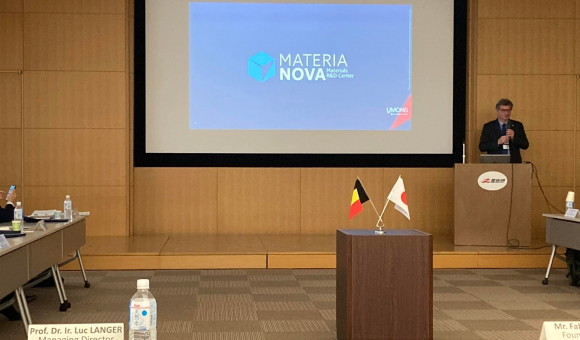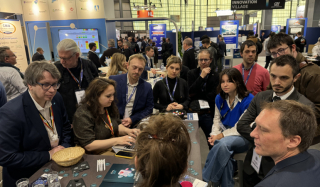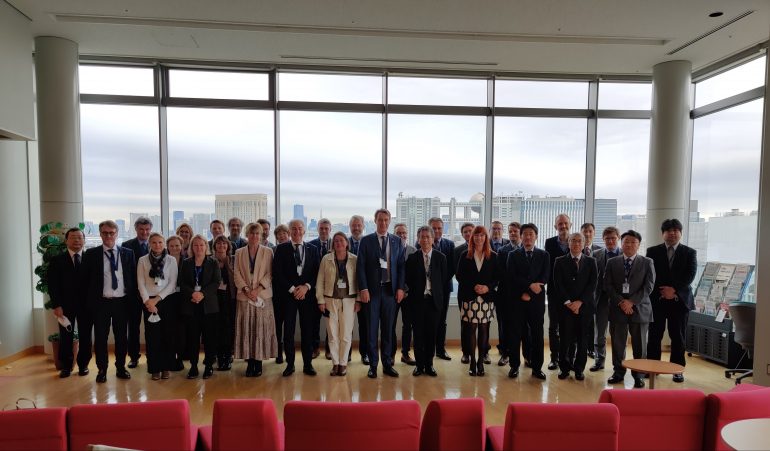
The ambitious objective of carbon neutrality by 2050, shared by Europe and Japan, requires synergies for the coordination of the energy and digital transitions to be promoted during the royal mission to Japan.
A large delegation of representatives from academia, research and industry visited the prestigious National Institute of Advanced Industrial Science and Technology (AIST) in Japan. While there, they met, in the Tokyo Waterfront buildings, the directors of the Global Zero Emission Research Center and the Industrial Cyber-Physical Systems Research Center and discussed their mission, organisation, funding sources and collaborative strategies around key challenges such as decarbonisation and cybersecurity.
Pascale Delcomminette presented the strategies and guaranteed her support for the political initiatives implemented in Wallonia and the Wallonia-Brussels Federation to support innovation in the fields of digital technologies and the environment. She reaffirmed the support of Wallonia-Brussels International and the Wallonia Export-Investment Agency for further exchanges and collaboration in technologies and services between companies in our territory and in Japan, to accomplish the energy and digital transitions required by our era. She also encouraged the mobility of talented young people to help them open up and become involved in the challenges.
Professor Vincent Blondel from UCLouvain presented, on behalf of the academic representatives present, the local and regional ecosystems such as the Digital Wallonia programme and the TRAIL Institute, which coordinates the industrial promotion of scientific excellence in the Federation in the key strategic areas of the environment and digitisation. He invited participants to undertake more discussions to accelerate the metamorphosis of our societies, in particular through training and mobility for talented individuals between Japan and Wallonia.
Founded in 2001, the National Institute of Advanced Industrial Science and Technology (AIST) is a public research institute associated with the Japanese Minister of Economy, Trade and Industry (METI) and dedicated to fundamental and applied research, development and technological implementation for industry. The organisation has the status of an independent administrative institution and comprises 15 research institutes and the Weights and Measures Training Institute of the METI. The AIST carries out a large number of activities in domains as varied as engineering, robotics, microfabrication, automation, digital technology, communication, information technologies, environment, instrumentation, materials and medicine.
The AIST Tokyo Waterfront promotes cutting-edge R&D activities focused on the merger between biology and information technologies, such as the development of a rational process for the discovery of medications using robotics and computational biology, the medical use of genomic data, AI research, the creation of values from massive data, the digitisation of functions and human behaviours, etc. Located in Tokyo, the public private partnership is operated proactively through different collaborations, technology transfers, the encouragement of young researchers, awareness actions, etc.
